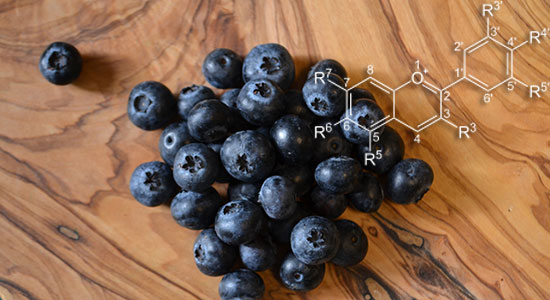Cardivascular Disease

Description
The Quadram Institute is at the centre of a unique concentration of expertise on the Norwich Research Park that is dedicated to the science of food and health. Central to our mission is to harness that expertise into understanding how individual foods and diets can help us maintain and to improve our health, and to develop innovative foods that can further promote health and healthy ageing.
Our focus is on promoting health, and preventing and ameliorating the effects of age and diet-related chronic diseases, including cardiovascular disease, cancer and cognitive decline. We seek to understand how individual food components, complex foods and combinations of foods are digested within the upper and lower gastrointestinal tract, and how nutrients and non-nutrient food components are released and absorbed into the body, including those resulting from fermentation in the colon. Our programme of research further seeks to understand how these absorbed products of digestion influences cellular processes to maintain and enhance health. An important part of our programme is to undertake dietary intervention studies and clinical trials with healthy and patient volunteers.
A major part of the programme is concerned with how simple and complex carbohydrates are digested in the upper gastrointestinal tract, and pass into the colon where they are fermented by the resident bacteria. We are interested how the structure of starch and the manner by which it may be encapsulated within plant organelles may influence the rate of digestion and fermentation processes. We seek to provide further insights into the role of different type of dietary fibre in the diet, and its interaction with lipid digestion. In addition to the major nutritional macronutrients, we seek to understand how certain specialised plant metabolites that are found in foods, such as polyphenolic compounds obtained from many fruits and vegetables, and sulphur-containing compounds found in Brassica and Allium vegetables may be important components in the diet and have a role in regulating metabolism through a variety of mechanisms.
In addition to providing insights into the fundamental processes that link food and health, the Quadram Institute is dedicated to translating this research into better dietary advice for the general population and specific interest groups, and to work with the commercial sector to develop innovative foods and products that enhance our health and contribute to the prevention of chronic disease.
Project Outcomes
The research interests of our group are on the microbial ecology of the gastrointestinal tract and the role of the complex gut microbiome in health and disease. We are isolating and characterising strains of gut bacteria that can outcompete pathogenic bacteria, for use in animals to improve food safety by reducing pathogenic bacteria in the food chain and reducing foodborne infections. We are also looking to use competitive exclusion in humans to combat bacterial infections. This, alongside other work in our group identifying and characterising novel antimicrobials, could help overcome the rise of antimicrobial resistance by reducing the need for antibiotics.
We use a combination of techniques, including in vitro colon models, tissue culture, metagenomics, metabolomics, to investigate methods of competitive exclusion, including biofilms, with the objective of designing probiotic strains with improved functionality. We also carry out human intervention and clinical trials.
We have, with the Norfolk and Norwich University Hospital, set up a bacteriotherapy service that is currently being used successfully to treat recurrent Clostridium difficile infection.
We are also involved in the development of improved diagnostics for gastrointestinal infections could lead to a more accurate and rapid treatment for patients. Our group is identifying antimicrobial biomolecules such as bacteriophage endolysins and antimicrobial peptides with abilities to target gut pathogens such as Clostridium difficile and Clostridium perfringens.
We have expertise in understanding gut microbial communities, and external factors that influence their dynamics. We are applying this to the study of the impact of antimicrobials, as well as the effects of dietary components on the gut microbial ecology. This includes analysis of how gut bacteria transform bioactive food molecules, linking with QI research into bioactives, as well as the microbial dynamics of natural food fermentations.
